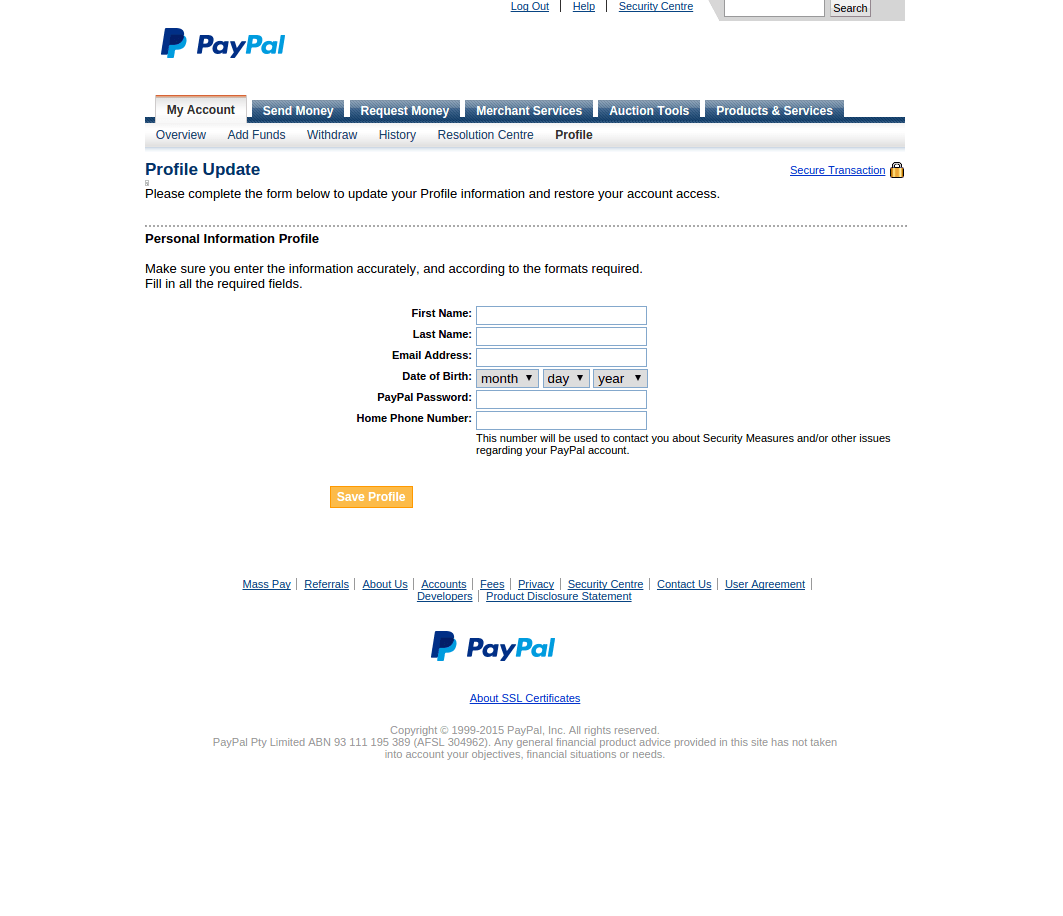PayPal's enormous success has attracted cyber thieves who are trying to retrieve user codes by various means. Because hackers can not breach overpowered PayPal servers, they usually turn their attacks on users with phishing campaigns that are becoming more and more plausible.
 One of the most recent campaigns Phishing detected by Comodo's Antispam Lab, where hackers use carefully worded emails post officey to trick users into entering their PayPal email and password into a hackers file.
One of the most recent campaigns Phishing detected by Comodo's Antispam Lab, where hackers use carefully worded emails post officey to trick users into entering their PayPal email and password into a hackers file.
The e-mail claims to be from PayPal's support team, and warns victim users of unusual activity on their account. They are then asked to update their profile to verify they are the owners.
The attached file is nothing more than an HTML file, made to look like the official PayPal website.
Οι χρήστες αν δεν καταλάβουν την παγίδα πληκτρολογούν όχι μόνο το email και τον κωδικό σύνδεσης της Paypal, αλλά και άλλες ευαίσθητες πληροφορίες, όπως τα στοιχεία της πιστωτικής τους cardς, ημερομηνία γέννησης, πλήρες όνομα, αριθμούς τηλεφώνου, πατρικό όνομα της μητέρας τους, και άλλα.
We at iGuRu having warned our readers many times, we repeat to you once again that you should be very careful with these types of emails. You should read the Url carefully (letter by letter). address of the email, as the hackers use similar names but never exactly the same as the official website services.
Also never reply to such emails. The best solution is to go to the official website "paypal.com" and if there really is an issue with your account then they will inform you through there.






